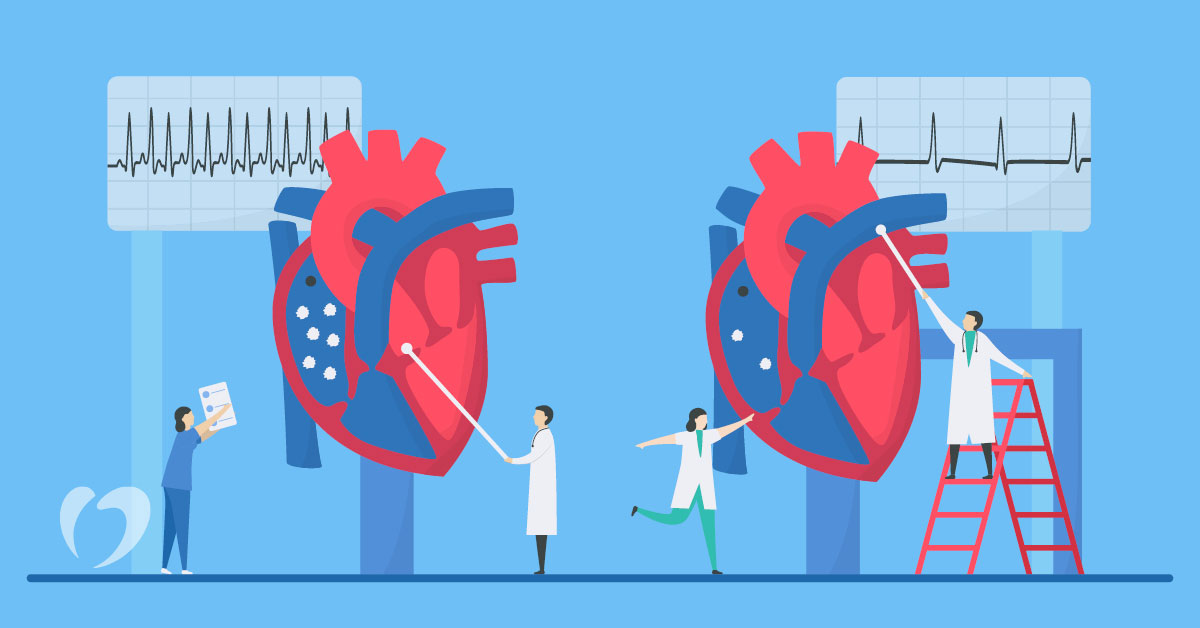Tachycardia: Causes, Symptoms and Treatment

Tachycardia is the medical term to describe a fast heartbeat. Heart rate varies from person to person and during different activities and times of day. For diagnosing fast and slow heart rates, doctors look at heartbeats while at rest. Any heart rate above 100 BPM at rest is considered faster than normal.
There are several different types of tachycardia, which are categorized and defined by what causes them. Recommended treatment of tachycardia varies based on the root cause.
Types of tachycardia
- Sinus tachycardia is caused by the heart’s natural pacemaker, or sinoatrial node, which is sending out signals faster than normal. This type of tachycardia is not caused by a structural defect.
- Supraventricular tachycardia, also known as SVT or atrial tachycardia, is a fast heartbeat that begins in the upper chambers of the heart.
- Ventricular tachycardia starts in the lower chambers, or ventricles, of the heart. This type of fast heart rate can be quite serious.
Symptoms of tachycardia
Different types of tachycardia often have the same symptoms, regardless of what is causing the fast heartbeat. Sometimes patients do not notice their fast heart rate, but symptoms may include:
- Heart palpitations or a fluttering feeling
- Chest pain
- Light headedness
- Dizziness
- Shortness of breath
If you are experiencing an extreme episode of these symptoms or think you might be having a health emergency, seek medical treatment immediately. If you are experiencing less severe symptoms, check in with your doctor for evaluation. While many causes of tachycardia do not require medical intervention, some cases can be serious.
Diagnosis and treatment
During an evaluation, your doctor will review your symptoms, as well as your medical history, habits, and overall health. If necessary, they will order further testing, which often includes an electrocardiogram (ECG or EKG). This test records the electrical activity of your heart and can be used to diagnose the type and potential cause of tachycardia. Sometimes, an at-home monitor is used to get a picture of how your heart responds in everyday situations. Your doctor may also recommend an electrophysiological study, which is a procedure that uses a catheter with sensors to map the electrical activity of the heart more precisely.
Treatment of tachycardia depends on the type. Ventricular tachycardia is often the most serious and requires treatment of the underlying condition that causes the fast heartbeat. Treatment could include medication, a catheter ablation to destroy the tissue causing the fast heartbeat, or the placement of an implantable cardioverter defibrillator (ICD). An ICD monitors your heart for dangerous patterns and helps regulate it when necessary.
Supraventricular tachycardia often results in recommendations for lifestyle changes, such as curbing caffeine and alcohol use, quitting smoking, or increasing the amount or quality of your sleep. Stress management and proper diet and exercise are important ways of maintaining your heart health and can reduce triggers for supraventricular tachycardia.
Sinus tachycardia may require treatment of an underlying condition, or your doctor may need to work with you to pinpoint triggers that cause episodes of tachycardia. For example, if a fever has caused your tachycardia, they may recommend fever-reducing medicines to reduce the fever and the chances of tachycardia.
If you are regularly experiencing tachycardia, it is important to investigate the underlying cause and necessary treatment. Schedule an appointment with the specialists at Oklahoma Heart Hospital today to discuss your treatment options.
